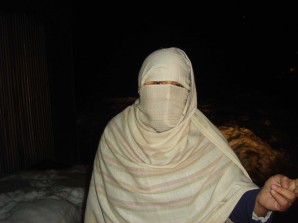
Kathmandu, 8 March 2014
International Women’s Day (IWD) has over the years become a landmark event in the annual activity calendar of ICIMOD. The Gender Resource Team (GReaT team), a dedicated team of gender champions from different streams within ICIMOD, and the gender team work together to plan the day and make it a memorable event. The commemoration of IWD in ICIMOD is not just a day of acknowledging and applauding the immense contribution of the women staff members but a rallying point to build support for women’s rights and meaningful participation within the HKH region. It is a day to collectively reflect on the challenges that women face and discuss the potential opportunities that await women.
The impacts of multiple drivers of change such as climate change, globalization, land use change, economic liberalization, migration, etc. have over the years become major development challenges particularly in developing and least developed countries of the Hindu Kush Himalayan (HKH) region. These changes have directly affected the natural resource base and threatened the livelihoods of those directly or indirectly dependent on these natural resources. Women have been recognized as one of the most vulnerable groups from impact of climate and other changes due to their socially constructed roles and responsibilities and relatively poor economic and political positions.
ICIMOD recognizes that to achieve the mission of sustainable mountain development it is essential to ensure full and equitable participation of mountain women to manage these changes so they can maximize benefits and minimize risks to them and to the environment. In keeping with its commitment to promote gender equality, ICIMOD has through its various programs initiated series of activities that are directed to bringing women at the center of development.
Through the Rural Livelihoods and Climate Change Adaptation in the Himalayas (Himalica) initiative, we are committed to promoting value chains of high value products and services with equitable engagement of women and measurable increase in the income for them. We are also actively involving women at village level to prepare micro plans for climate change adaptation and natural resource management. Under the Himalayan Climate Change Adaptation Programme (HICAP), we are developing gender profiles for communities in the four river basins (Upper Indus, Koshi, Eastern Brahmaputra, and Salween-Mekong) and scoping out the impact of climate change on women’s livelihood and identifying successful adaptive practices.
Under the Kailash Sacred Landscape Conservation and Development initiative we are initiating leadership development training for women at community level to enhance their capacity to take lead in conservation and development of their landscapes as well as at the partner institution level in order to support women leadership at the ground level. We are also piloting a unique methodology for valuation of cultural and spiritual services sustained by women in the Kailash Sacred Landscape in the context of outmigration of men.
The Atmosphere initiative is introducing gender responsive mitigation options in sectors such as improved cook stoves and brick kilns, to counter the health hazards faced by women and children. Based on the findings of the pilots, it will make strong policy recommendations.
There are increasing evidences from the field that women are disproportionately vulnerable to floods due to their gender roles and associated social and institutional constraints. Under HYCOS Initiative, three studies on flood Early Warning Systems with a strong gender perspective were carried out in Bhutan, Nepal, and Pakistan. These studies highlight the importance of involving women in disaster preparedness and to develop their capacities to receive and respond to Early Warning Systems. The next step would be to incorporate these findings to make the EWS more efficient and effective across the region. These are just some of the examples from our ongoing work.
ICIMOD also recognizes that change begins at home. While ICIMOD continues to strengthen its gender integration in programmatic work across the region, it has also given special attention to strengthening the Gender focused institutional processes and activities. The Gender Equity Policy (GEP) has been approved by the Board of Governors of ICIMOD and is now in full force. It is expected to guide the overall development interventions, including in the policies and programmes, in capacity building and in knowledge management in order to promote a people centered and gender equitable development.
Research shows that women in leadership positions can enhance organizational performance in measurable, quantifiable ways. To tap the potential of women scientists and professionals for increasing institutional performance and increase women’s inclusion in decision-making and management positions, we are developing a Women’s Leadership and Management Training Course for women staff and women scientists in the region. The course will be implemented in phases within ICIMOD beginning 2014 and will slowly phase out to include our partners.
To ensure that our staff is aware of implicit and explicit gender relations at workplace and have enough understanding of the GEP and to work towards creating gender sensitive and enabling work environment, a gender sensitivity training for all will be started in 2014. Last but not the least, we have launched a web-based mega database of gender experts and women scientists and professionals around the world working in the mountain areas. We hope that this will improve participation of women professionals and gender experts in all our national and regional workshops and help bring in strong gender perspectives.

